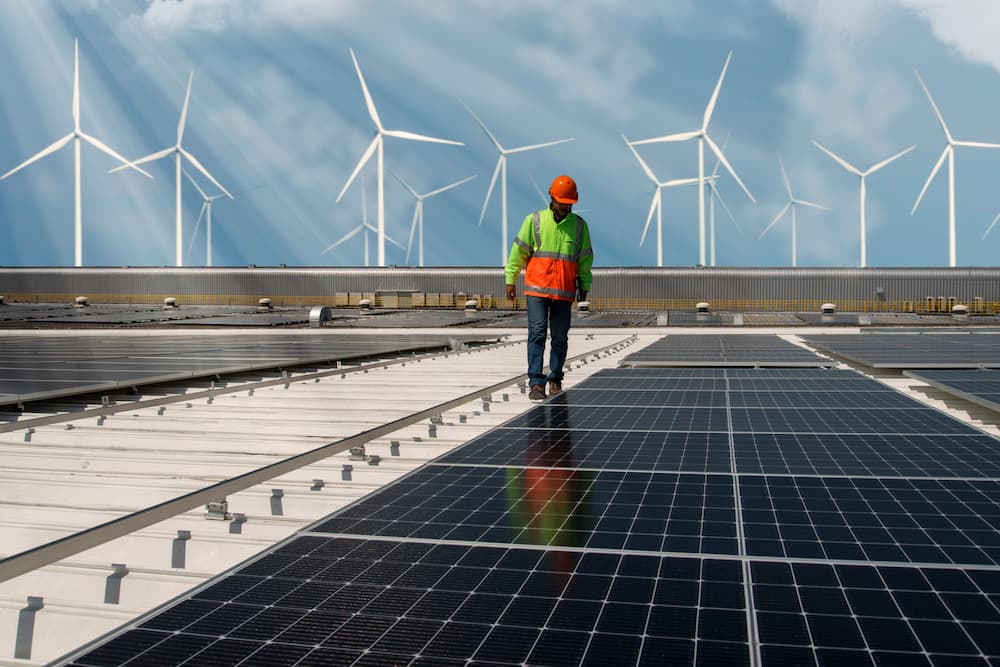Sustainable Practises Improving Manufacturing Operations
Reducing the environmental damage of various industries in the UK is a challenge that manufacturing is rising to. The main focus is to reduce harmful ecological waste and make carbon emissions neutral through reduced output and offset compensation efforts.
Industries like manufacturing have significantly negatively affected the environment for many decades. Still, with new processes being developed often, the industry has a greener future.
UK Sustainability Challenge
It has been just over a year since the UK hosted COP 26 (United Nations Climate Change Conference #26) at the end of November 2021. This impactful conference addressed three main goals related to reversing climate change:
- Revisiting the 2015 Paris Agreement for improvements such as limiting warming to 1.5°C
- Phasing down unabated coal usage
- Committing to financing climate change efforts in developing countries
There was also a pledge to increase countries to aim for Net Zero status. With over 40 countries already committed to reversing deforestation and electricity generated from coal, they adopted over 140 members into the Net Zero plan.
The UK government heavily supports the Net Zero 2050 plan as a road map for companies to improve their ecological status. It involves time-based targets that must be met to create a genuinely carbon-neutral economy in our country. However, rather than one single way, many smaller methods are helping spring manufacturers achieve their sustainability goals.
What Are Green Skills?
Green skills are an assistive framework that promotes a more sustainable approach in many areas, including manufacturing. In addition, these skills positively affect individual attitudes within the workplace regarding environmental care. Examples of these are already evident in many workplaces with recycling, but green skills develop it further with adaptable competencies that create a broad green mindset.
Competencies are the culmination of shared skills, knowledge and values that help workers act on a green mindset without distraction from their daily work. Using these green skills, minor ecological improvements can be made daily, building over time into significant, permanent change. The details of these skills will be dependent on your company’s focus, but there are three primary competencies:
Cognitive Competencies
Cognitive involves the company’s awareness of their effect on the environment and what green practices will reduce them to promote sustainability. This competency is relatively fluid, as it can change and grow as new innovations are discovered and applied to your working methods.
Interpersonal and Intrapersonal Competencies
Whereas cognitive is thought of as planning, development, and study, these two are about implementing the ideas to assess their effectiveness. Interpersonal involves creating strategies for your team to follow and establishing guidelines for long-term goals that will track progress. Intrapersonal addresses new skills that may be required but are also intricately connected to technological competencies.
Technological Competencies
Many new eco-friendly processes involve new machinery, technology or strategies that will help reduce harmful waste or carbon emissions. One already wildly successful example is the general elimination of paper correspondence in business, such as letters or printed emails. The increasing implementation of digital processes such as emails has drastically reduced paper waste. The same concept can be applied to other areas of manufacturing. Being more attentive to the sourced raw materials and choosing recycled sources reduces the industry’s effect on the environment immensely.
Sustainable Circular Models
Sourcing the required materials sustainably required significant changes across manufacturing processes. Circular models aim to eliminate the traditional linear method of product creation that leads to waste and link it to have the waste support new creation. Recycling supports a circular model, but the concept needs to be developed furth within industries. Improving the circular economy model to a remanufacturing plan means greater security and reduced costs relating to sourcing materials as the waste can be reused.
Manufacturing is a high-energy industry that uses many resources and electricity to operate productively. As a result, most facilities are contributing to carbon offset schemes for their power generation needs and supporting the increased development of renewable energy sources such as wind, solar and wave. The increased availability of these renewable sources has led many facility owners to invest in local generation with smaller wind turbines and roofs covered in solar panels. These sources will supplement some of the substantial energy needs of manufacturing parts and components, thereby simultaneously reducing energy costs and environmental impact.
A Sustainable Future for Manufacturing
European Springs is committed to supporting a more ecologically sound industry for future generations. Decreasing the industry’s impact on the environment will secure that future and maintain the integrity of habitats worldwide. Sustainable material use and manufacture also eliminate toxic by-products from waste entering nature’s systems and harming both plants, animals, and humans.
European Springs is a leading manufacturer of custom springs in the UK, and we are constantly working to improve our high-quality spring manufacturing processes, so they continue to have a minimal environmental impact. Contact us to discuss our working methods or any bespoke spring designs you need for your next application.


